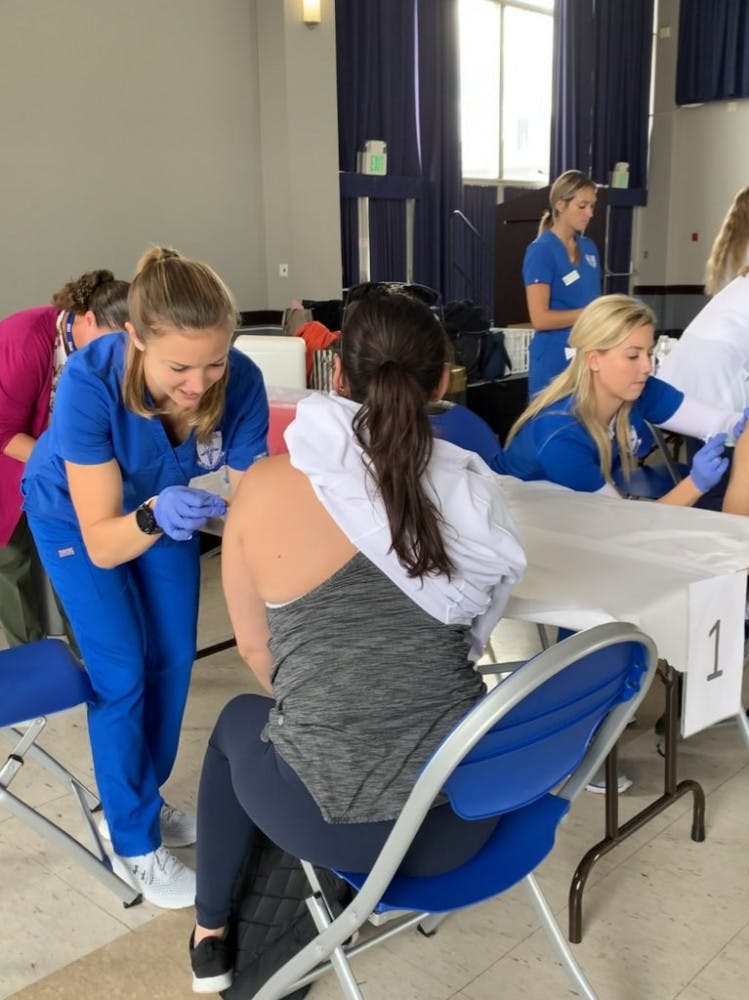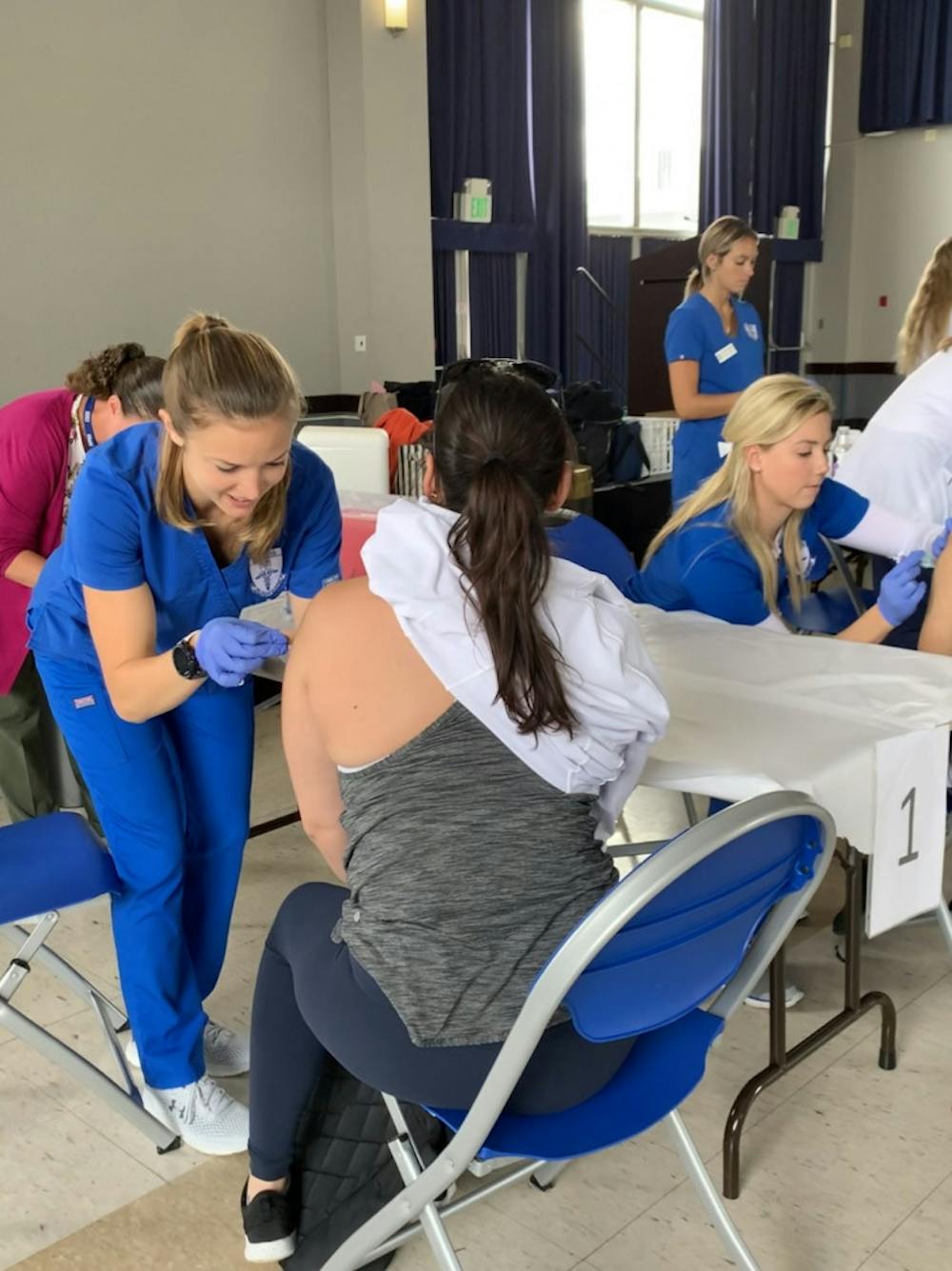Coughs can be heard echoing across campus as flu season has returned in New Jersey and nationwide.
The Centers for Disease Control and Prevention (CDC) estimates that Influenza-like illness is currently widespread in every state except for Hawaii.

Symptoms of the flu and viruses like it include fever, chills, muscle aches, cough, congestion, runny nose, headaches and fatigue.
The virus is spread through droplets in the coughs, sneezes or possibly breath of an infected person, according to the CDC. Less often, a person might get the flu by touching a surface or object that has the flu virus on it and then touching their own mouth, nose or possibly their eyes.
Diane Lynch, director of Health Services at SHU, said that there was an increase in flu and flu-like illness on campus in recent weeks.
“Many viruses circulate at this time of the year and in addition to the flu, we have been seeing an increase in viral upper respiratory infections and viral gastroenteritis since students returned in January,” Lynch said.
Freshman political science major Tim Dziekan had many flu-like symptoms last week.
“I spent like three days in bed and took a ton of DayQuil and I only moved to get food,” Dziekan said. “It was hell, but I got through it.”
Freshman Theater and Political Science major Olivia Ransbottom has also been ill.
“I felt like I had a severe cold that could have been borderline flu,” Ransbottom said.
Sophomore Political Science major Dana Bell was unsure of whether she was ill, but the fear of worsening symptoms kept her at home.
“One of my professors had the stomach flu, so me feeling slightly sick in the morning combined with that made me afraid to go to class,” Bell said.
While the flu shot does not prevent all flu-like illness, it does protect against many of this year’s most dangerous strains. For students seeking to avoid illness, there is still time to get a flu shot.
“Students can obtain a free flu shot in health services… it’s still the best way to avoid getting the flu,” Lynch said. “Flu shots are also available at many pharmacies and your health care providers office at no cost with your insurance card.”
Health services also held a free flu shot distribution event in September.
Lynch also recommended healthy students wash their hands or use hand sanitizer frequently, especially before eating, to prevent infection.
“Eat a healthy diet and get sufficient rest. Poor sleep habits will put you at risk for increased illness and impact on your overall performance as a student,” Lynch said.
Freshman Brigid Benko, a self described germaphobe, is determined not to get sick.
“I’m using a ton of hand sanitizer right now, and I’m also trying to keep tissues on me at all times,” Benko said. “I’ve been debating getting some disposable face masks to protect myself, but I’m not sure how effective they are.”
Lynch explained that there are many treatment options for those who are infected with the flu, but that it is determined on a case-by-case basis by healthcare individuals.
“Tamiflu is a prescription antiviral medication that may be an option if you have the flu,” Lynch said. “It’s not appropriate for everyone. Seek care within 24-48 hours of symptoms and your healthcare provider will provide more information based on your individual situation.”
Students with underlying respiratory or immune conditions such as asthma or diabetes should contact Health Services as soon as possible after symptoms begin.
Anyone with a fever and cough should avoid going out in public whenever possible in order to protect themselves and the rest of the community.
More information on self-care for influenza and similar viruses is available on the Health Services website, as well as on the CDC website.
Daniel O’Connor can be reached at daniel.oconner1@student.shu.edu.





